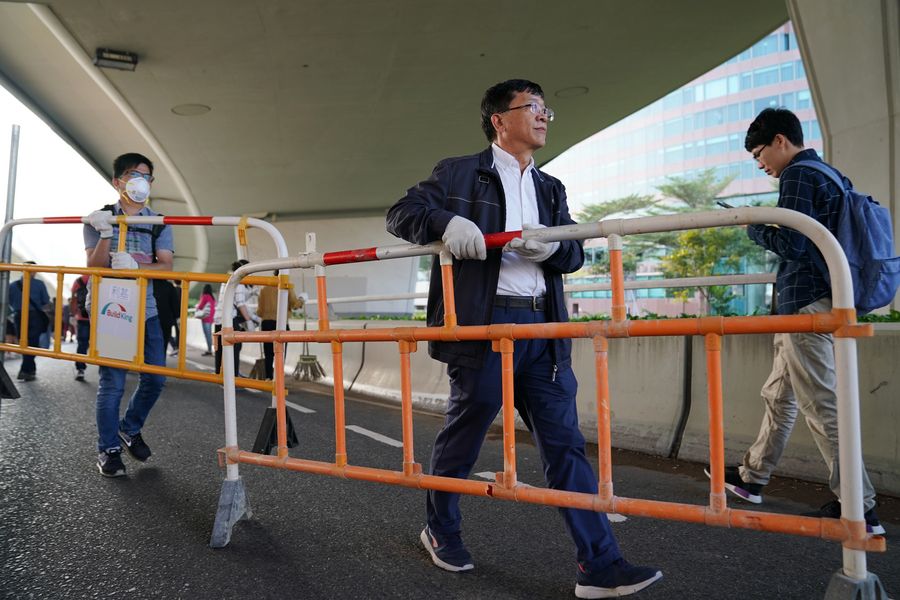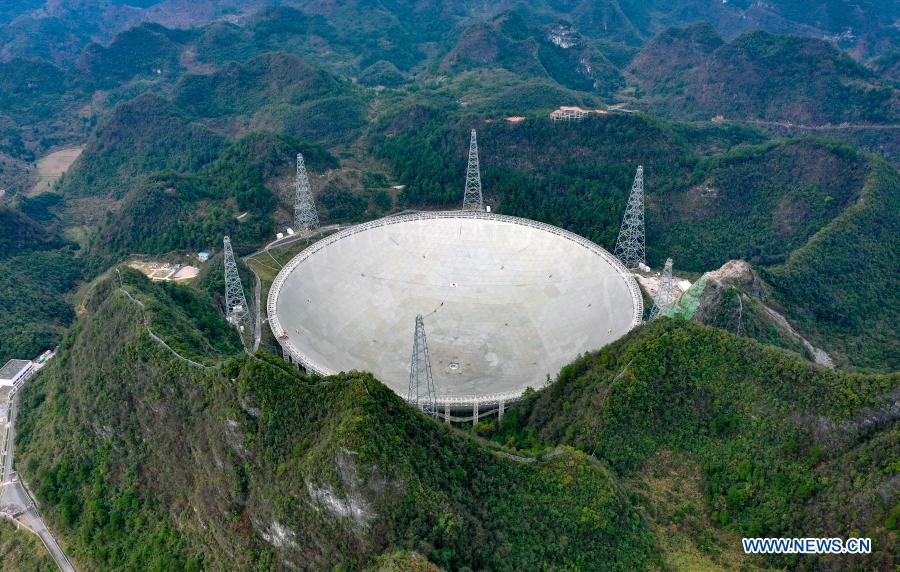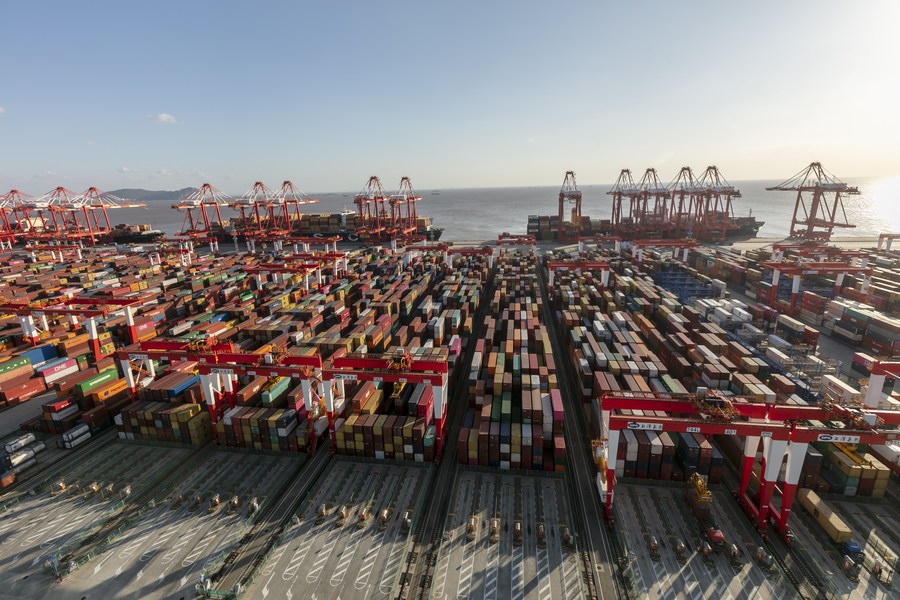
Residents clear roadblocks and debris near the Hong Kong Polytechnic University in Hong Kong, south China, Nov. 20, 2019. (Xinhua/Wang Shen)
Presenting the draft to the national legislature last week, senior legislator Wang Chen said increasingly notable national security risks in Hong Kong have become a prominent problem.
There are apparent "weak links" in Hong Kong's existing legal system and enforcement mechanisms in safeguarding national security, said Wang, vice chairman of the NPC Standing Committee.
Considering Hong Kong's situation at present, efforts must be made at the state level to establish and improve the legal system and enforcement mechanisms for the HKSAR to safeguard national security, he said.
"National security is like the air. Without it, no one can survive," said Witman Hung, an NPC deputy from the HKSAR. "The NPC decision comes at the right time."
PURVIEW OF CENTRAL AUTHORITIES
Alan Hoo, chairman of the Basic Law Institute in Hong Kong, said national security legislation is a state legislative power no matter a country adopts the unitary or federal system. National security laws can be found in both common law and continental law systems.
Hong Kong, he said, cannot remain unguarded.
In an online article on the issue, Secretary for Justice Teresa Cheng of the HKSAR government said national security is a matter of national interest that concerns the whole population of China and falls squarely within the purview of the central authorities.
Cheng stressed that it is fundamental to recognize that the central authorities hold the ultimate responsibility for national security in all local administrative regions.













